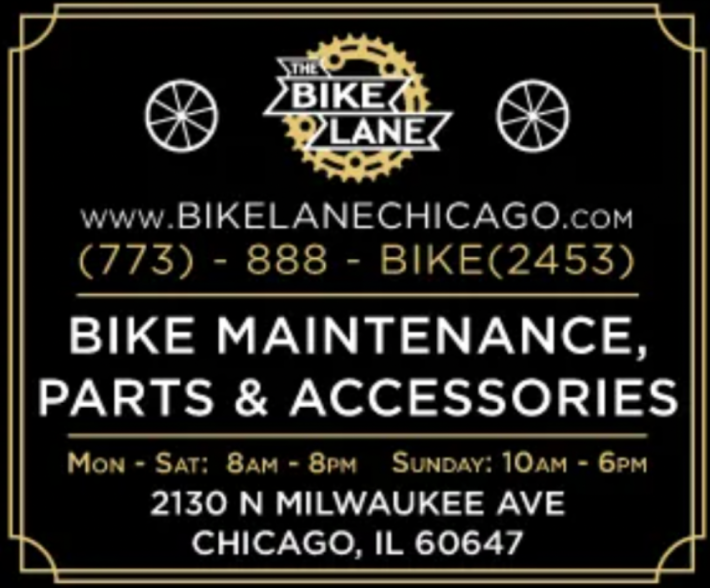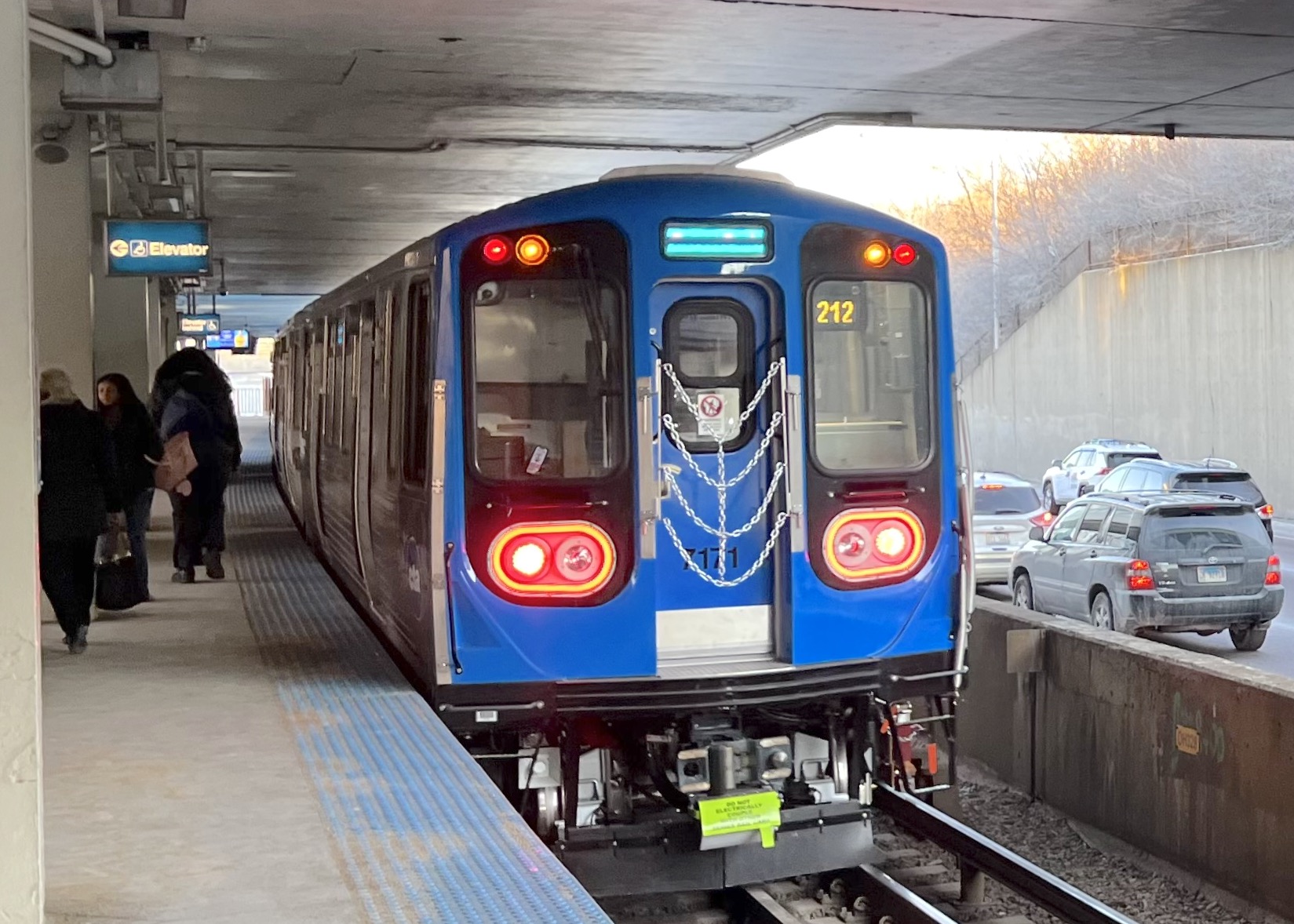
Read Capitol Fax Editor Rich Miller's post critiquing the op-ed, "Unsolicited Advice," here.
On June 17, I said I considered the recent "Journalism Gangs of Illinois"-style conflicts between the tireless statehouse news site Capitol Fax and Streetsblog Chicago to be water under the bridge. Please see my remarks below guest op-ed writer Ellen Steinke's June 13 piece, titled "Uber and the road construction lobby just killed Illinois’ transit funding bill, and your lawmakers let them."
Capitol Fax Editor Rich Miller made the following statements about Ellen, her op-ed, and by extension SBC, in his June 17 Capitol Fax post titled "Unsolicited Advice":
• "[Ellen's article] is a story an activist who has never been to Springfield would, and did, write."
• "Unsolicited advice: If you’re an activist, get your best deal on reform and then take the revenue that’s offered."
• In the comment section: "[Ellen and Streetsblog Chicago are] doing harm by spreading misinformation/disinformation."
You can also read Ellen's initial responses to Miller's criticisms in the update below her previous op-ed.
After doing some addition research of the subject, Ellen sent me the following piece. It further rebuts the claims by Capitol Fax and International Union of Operating Engineers Local 150 that the clout-heavy private construction union and Uber didn't help kill Illinois' transit funding and reform bill. While I was ready to move on from this disagreement, I felt she deserved some more space in Streetsblog Chicago to defend what she wrote. As a guest op-ed, the following does not necessarily reflect the viewpoints of SBC staff.
- John Greenfield, editor
By Ellen Steinke
In the final minutes of Illinois’ spring legislative session, around midnight on May 31, a transformative and long-awaited bill to rescue public transit died.
The bill had two parts: reform and funding. The reforms—streamlined governance, enhanced worker protections, improved oversight—had broad support and, by most accounts, could have passed both chambers. But the funding—estimated at $1.5 to $1.7 billion—was where things fell apart.
The funding aspect of the bill involved two foundational funding proposals:
- A 50-cent toll surcharge (the most substantial and stable source)
- Ride-hail and non-essential delivery fees (more speculative and politically contentious).
Both met opposition.
IOUE Local 150, the road construction union whose members rely heavily on state contracts, publicly opposed using toll surcharges to fund transit — even though it wouldn’t touch any existing road funds.
Uber, for its part, mobilized against the ride-hail fee, sending push notifications to users just as the bill was being finalized.
In my previous Streetsblog Chicago op-ed, I argued that these two groups — despite claiming to "support transit" — opposed the very mechanisms that could have funded it. That opposition, I said, played a role in killing the bill.
Capitol Fax Editor Rich Miller responded by labeling that "misinformation." He said the bill was "already dead," and that my claims overstated the influence of Local 150 and Uber. But I still believe my framing was fair, and here’s why.
From the start of the legislative session, Local 150 opposed using toll revenue — even new revenue — for public transit. In May, a Local 150 representative made these statements:
- "Marc Poulos of the International Union of Operating Engineers Local 150. [said], 'This proposal is inequitable as suburban drivers would effectively subsidize urban transit systems… [i.e.] robbing Peter to pay Paul.'" – WTTW, May 29, 2025
- "Marc Poulos... put the proposal on blast [telling the Senate Transportation Committee], 'The [toll] surcharge would jeopardize public support for long term infrastructure initiatives." – Capitol Fax, May 29, 2025
- "Marc Poulos [said in Illinois Senate testimony] 'Tollway revenues are legally designed for Tollway-related projects.'" – The Illinoize, May 30, 2025
At the time, the toll surcharge was the only publicly discussed substantial revenue mechanism on the table. Only after it was stripped in the final hours did Local 150 and its allies voice support for the bill which included the alternate rideshare and delivery fees.
And that’s the point.
Support in the final hours of the session is not the same as support during the crucial weeks and months when the bill needed momentum. Poulos and others never publicly said, "We oppose this, but here’s an alternative that could work." They just said no.
As for the ride-hail company, Miller argued, "Uber’s astroturf lobbying was just not a factor. [the bill] wasn’t moving anyway." But it’s hard to claim that Uber's high-profile, last-minute push helped. Its public opposition only added friction to an already fragile political equation.
So when I said Local 150’s opposition "helped stall transit bill negotiations for weeks," and that Uber’s lobbying "helped kill the bill," I didn’t mean they were solely to blame. I meant they were part of the reason the bill collapsed — and a meaningful part.
In reality, the picture is more complicated. And perhaps more concerning.
Through recent conversations with legislative staffers and advocates, I’ve learned that:
- Although Illinois House Speaker Chris Welch said reforms had to be tied to funding, the House never introduced a funding plan.
- The Illinois Senate passed the bill with only 11 minutes to spare, leaving the House no real time to read or vote on it. (The House ostensibly had access to the Senate version and could have been familiar with it — or drafted their own, as they did with the reform portion.
- The reform package had broad support in both chambers, but tying it to underdeveloped funding ultimately sank the whole thing.
The House only received the Senate version after 11:50 p.m. on May 31, giving members no real time to read or debate the bill before the session ended. And that raises real questions.
If legislative leadership believed funding was a non-negotiable piece of the reforms, why wasn’t a funding package prepared months — or at least weeks — in advance?
The House had its own version of the reform bill. So why didn’t it draft a funding bill as well, instead waiting to see what the Senate would do?
Why was the only substantial funding mechanism also the one most doomed to fail politically? And why was it kept in the bill until the final moments, even as the Chicagoland transit fiscal cliff had been looming for nearly two years?
Ultimately, Rich Miller’s critique argued that I exaggerated Local 150 and Uber’s role in the bill’s failure. That led me to dig deeper to determine whether his claim was valid.
The more I’ve learned, the more I’ve solidified my original view — and also come to see that even more actors contributed to the collapse. That includes House and Senate leadership, who failed to prepare a viable funding plan in time, as well as powerful interest groups that obstructed specific funding mechanisms.
If anything, I understated how systemically broken the process was.
But I stand by what I wrote:
- Local 150’s opposition to the toll surcharge delayed the bill’s momentum and arguably helped stall it until the last moments of the session — ultimately leaving the House with no time to review, debate, or vote on the Senate’s version.
- Uber’s last-minute mobilization against a ride-hail fee added political friction to a speculative but promising funding source — at a moment when confidence and clarity were already in short supply.
But I’ll also add this:
- Leadership in both chambers failed to plan adequately — despite knowing for years that transit funding was running out.
- And now Illinoisans are stuck with a crumbling system and no funding plan in place, while most political insiders offer a shrug and an "I don’t know" in response to what happened.
If we want better outcomes, we have to tell the full story. Naming power, asking who delayed action — and who benefited from inaction — all of that matters.
Because unless we get honest about the way things played out, we’re doomed to watch it happen again.
If you have thoughts, questions, or firsthand insight — whether you were at the table or just watching like the rest of us — please feel free to write me at: ellensteinkewrites[at]gmail[dot]com.
Read Capitol Fax Editor Rich Miller's post critiquing the op-ed, "Unsolicited Advice," here.

Did you appreciate this post? Streetsblog Chicago is currently fundraising to help cover our 2025-26 budget. If you appreciate our reporting and advocacy on local sustainable transportation issues, please consider making a tax-deductible donation here. Thank you.




